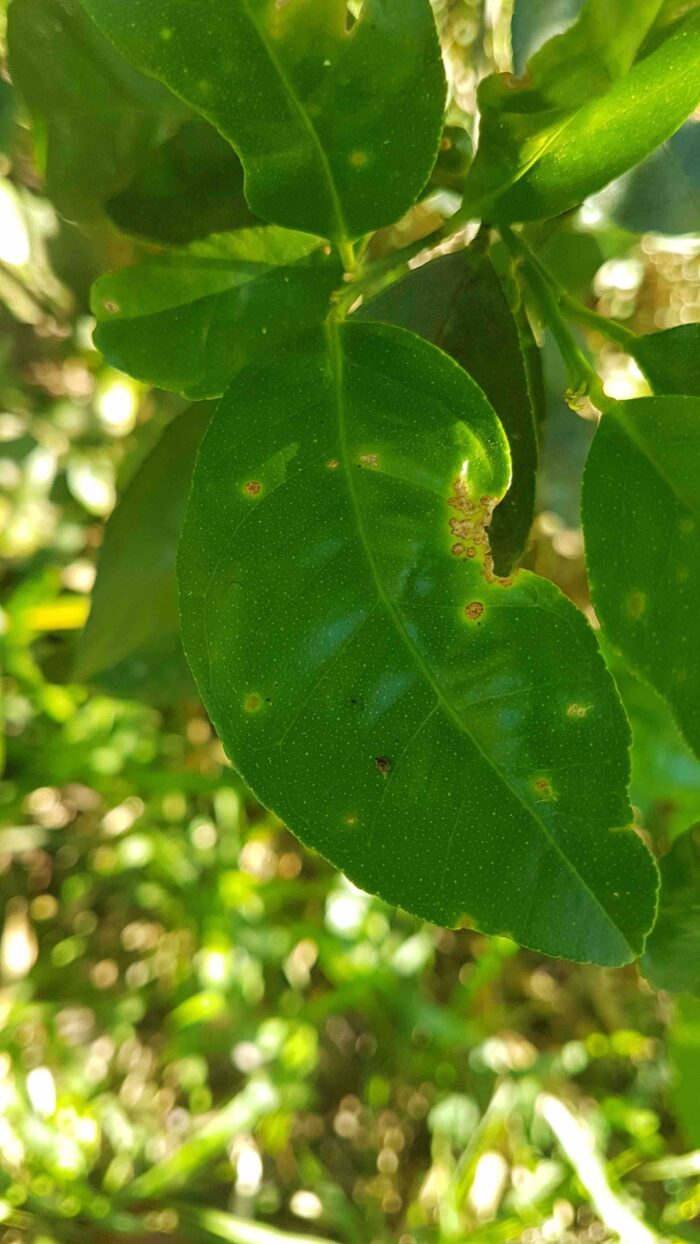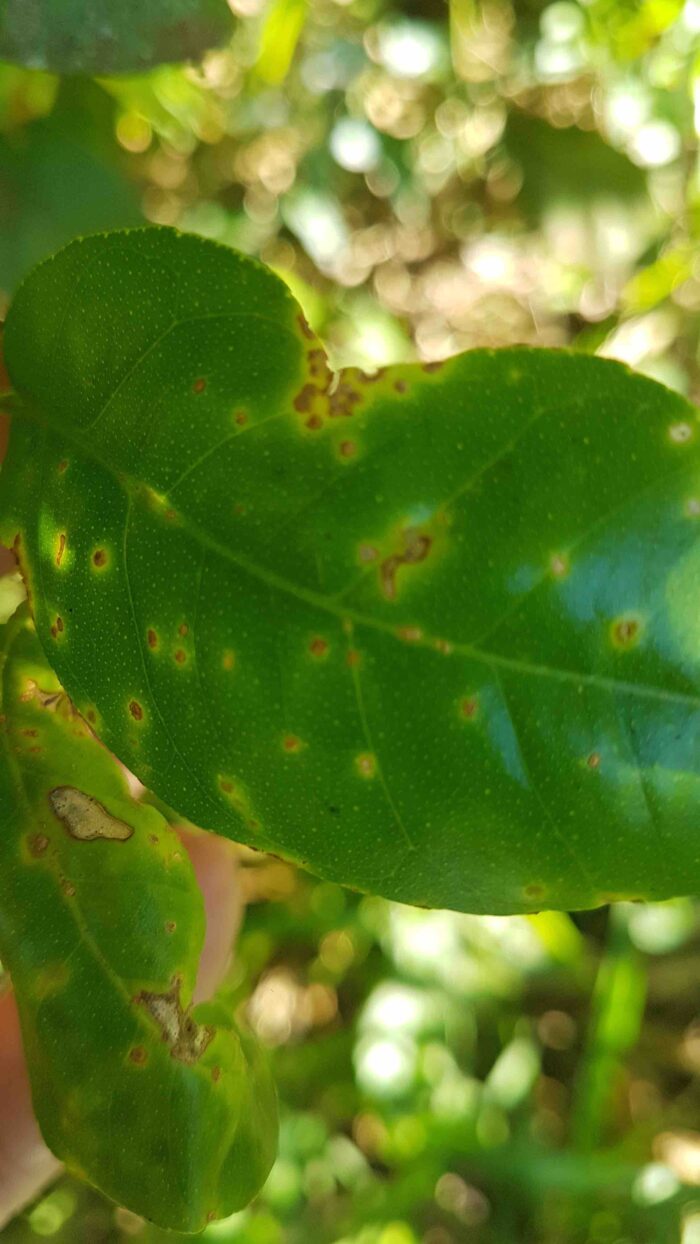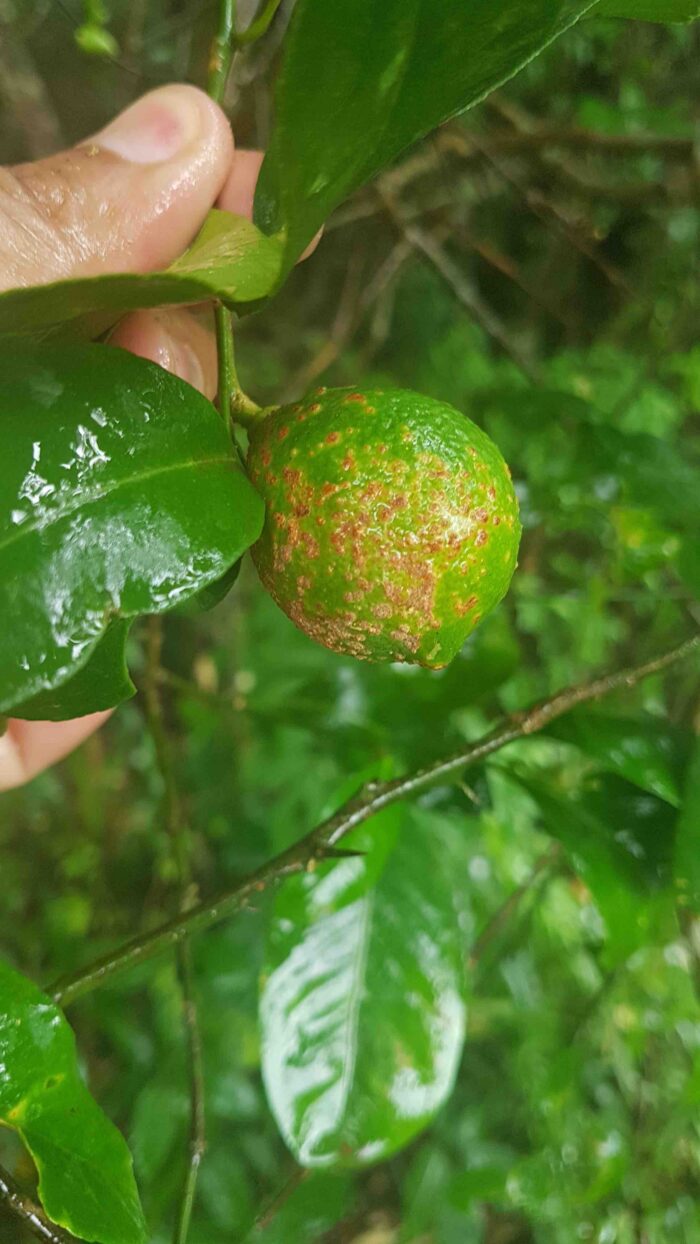Citrus Canker
Citrus
Citrus canker is caused by bacteria that penetrate citrus trees through stomata or wounded tissue. Citrus leaf miner damage, for example, increases the risk of infection. The disease favors high humidity that is combined with warm weather conditions. The citrus canker life cycle continues as the disease is spread by winds, rain, or water splashes. It can also be transmitted mechanically by using contaminated tools. Canker lesions ooze bacterial material that then spread and infects other plants. New outbreaks of citrus canker usually happen when new shoots are coming out and fruits start to develop.
Initial symptoms of citrus canker are small lesions on leaves that might resemble blisters. Later on, the blisters develop into brownish necrotic-like elevated corky lesions often surrounded by a yellow halo. On twigs, citrus canker appears corky, which is often surrounded by water-soaked margins. On fruits, citrus canker appears as brown scab-like or corky lesions and appears as elevated tissue. A fruit infected with canker is safe to consume but has reduced marketability.
Generally speaking, once a tree is infected with Xanthomonas axonopodis pv. citri, the tree begins to slowly decline towards death. The fruits and foliage tend to drop prematurely and infected fruits that have canker signs are not marketable. Citrus canker has the ability to decimate entire orchards and poses a huge risk to the whole citrus industry.
Sanitation: Removing and destroying infected plant parts and residues using sterile pruning tools helps to diminish the overall spread of citrus canker. It is essential that the equipment and the workers in infected regions go through a disinfection process too. Equipment can be disinfected and treated with an approved disinfectant. Large scale quarantine measures often take place in regions where citrus canker is yet to be endemic to prevent the introduction of the bacteria. The risk of introducing citrus canker to disease-free countries gives raise to strict restriction measures that are implemented on citrus importation.
Cultivar Selection: Some species are more susceptible than others; few are resistant. In regions where outbreaks occur, switching from susceptible citrus cultivars to resistant cultivars is often essential, necessary, and sometimes imminent.
Windbreaks: Physical barriers can help reduce the spread of canker, especially in endemic situations since significant portions of new infections are caused by wind-blown rains
No effective chemical control.
Copper-based products that are sprayed frequently can help protect fruits or leaves and can aid in suppressing canker citrus for spreading.
Controlling leafminer is vital because tunnels on leaves can expose the tissues to infections.
*Names marked in red are considered to be highly poisonous to beneficial insects.
*Names marked in green are considered to be organic and IPM (integrated pest management) compatible.
Image Gallery


